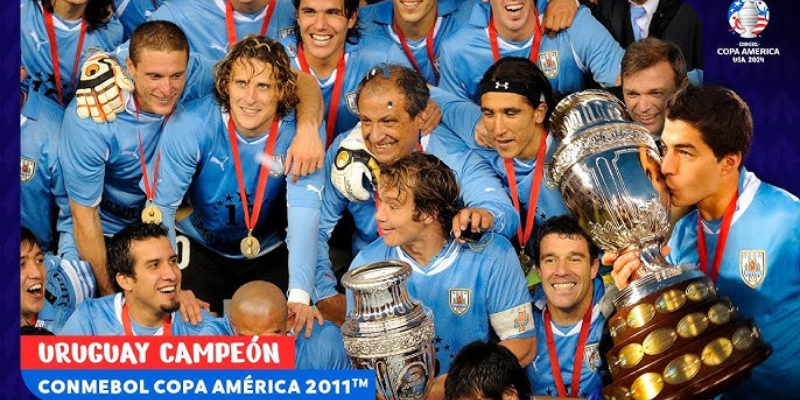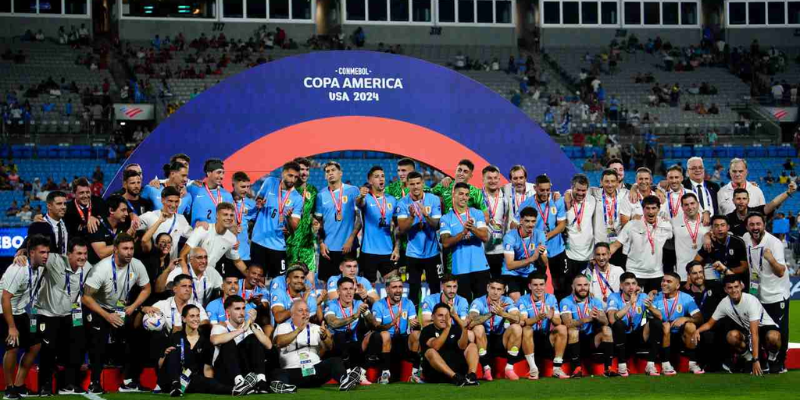If you’ve ever wondered , the answer is yes — Luis Suárez has won the Copa América, with Uruguay in 2011. That tournament is his biggest international title, and it came with more than just a medal: he was also named Best Player of the Tournament for his performances. Today, KottuGoal will walk you through exactly how it happened, what Suárez did in that Copa América, and some stats and legacy tied to that moment.
What is Copa América and why 2011 was special

Copa América is South America’s premier national-team tournament, organized by CONMEBOL. It’s packed with history — passionate fans, historic rivalries, unexpected upsets, and stars making their mark. Winning it is a career-defining moment for any player in the region.
In 2011, the tournament was held in Argentina. They had not won the Copa América since 1995, so there was pressure to reclaim that closeness to glory. Suárez was among a generation expected to deliver.
Suárez’s role in the 2011 Copa América triumph

Here’s how Luis Suárez played a crucial part in making Uruguay champions:
- Suárez was active across five editions of the Copa América, but 2011 is the only one that resulted in a title for him.
- He played 6tches in the 2011 tournament.
- Scored 4 goals and provided 2 assists.
- Scored in the final: He opened the scoring vs Paraguay and helped set up Diego Forlán’s goal, in Uruguay’s 3-0 win.
- Earned the Player of the Tournament (MVP) award for his contributions.
The final was played on 24 July 2011 in Buenos Aires. Uruguay defeated Paraguay 3-0 to secure their 15th Copa América title.
Other Copa América participations & outcomes

To appreciate the significance of the 2011 win, here are some context on Suárez’s other Copa América experiences:
- After 2011, he played in 2015, 2016 (he missed due to injury), 2019, 2021, and 2024 editions.
- None of those editions resulted in tournament victory for him or Uruguay.
- In 2024, for example, Uruguay finished third, and Suárez played a role in securing that placing, but no trophy.
So, while 2011 remains his singular Copa América title, Suárez has had a long career in the competition and has contributed multiple times.
Stats, records, and legacy from the 2011 win
Suárez’s performance in 2011 created several lasting marks:
- The 2011 title broke a 16-year Copa América drought for Uruguay.
- Suárez scored in both high-pressure knockout matches (semifinals, final) and was decisive, not just by goals but by influence.
- He became Uruguay’s all-time leading scorer in official matches (eventually), and 2011 was a major contribution to his tally.
- The Best Player award in the tournament further cemented his standing not only as one of Uruguay’s top stars, but among top South American forwards.
Common misconceptions & FAQs
Here are some questions people often mix up about Suárez and Copa América:
Did Suárez win multiple Copa América titles?
- No — 2011 is the only Copa América title he won with Uruguay. Other editions saw strong performances but no trophy.
- Was he always fully fit in other editions?
- No. For example, in 2016 he missed due to injury.
- Did Suárez also win individual awards in Copa América besides 2011?
- His standout individual recognition in Copa América came in 2011 — as Best Player of the Tournament and included in the Team of the Tournament.
Why the 2011 win matters beyond just the trophy
This win is more than just one more title in Suárez’s cabinet. It shaped his legacy:
- It proved he could deliver under pressure in major international tournaments.
- It solidified Uruguay’s return to the top of South American football.
- It raised his profile globally: that performance helped his reputation with clubs, media, and fans.
- Emotionally, for Uruguayans, it was a moment of pride — ending years of waiting, showcasing a team with tradition and fight.
Conclusion
Did Suárez win Copa América? Yes — he did, in 2011, delivering for Uruguay and earning the Best Player of the Tournament honor. KottuGoal hopes this clears up any doubts and brings into sharp focus what that win meant for his name, his nation, and his career.
If you like, I can also share a full list of Luis Suárez’s career trophies, or compare how many international titles he has versus other great South American forwards. Would you prefer that?






